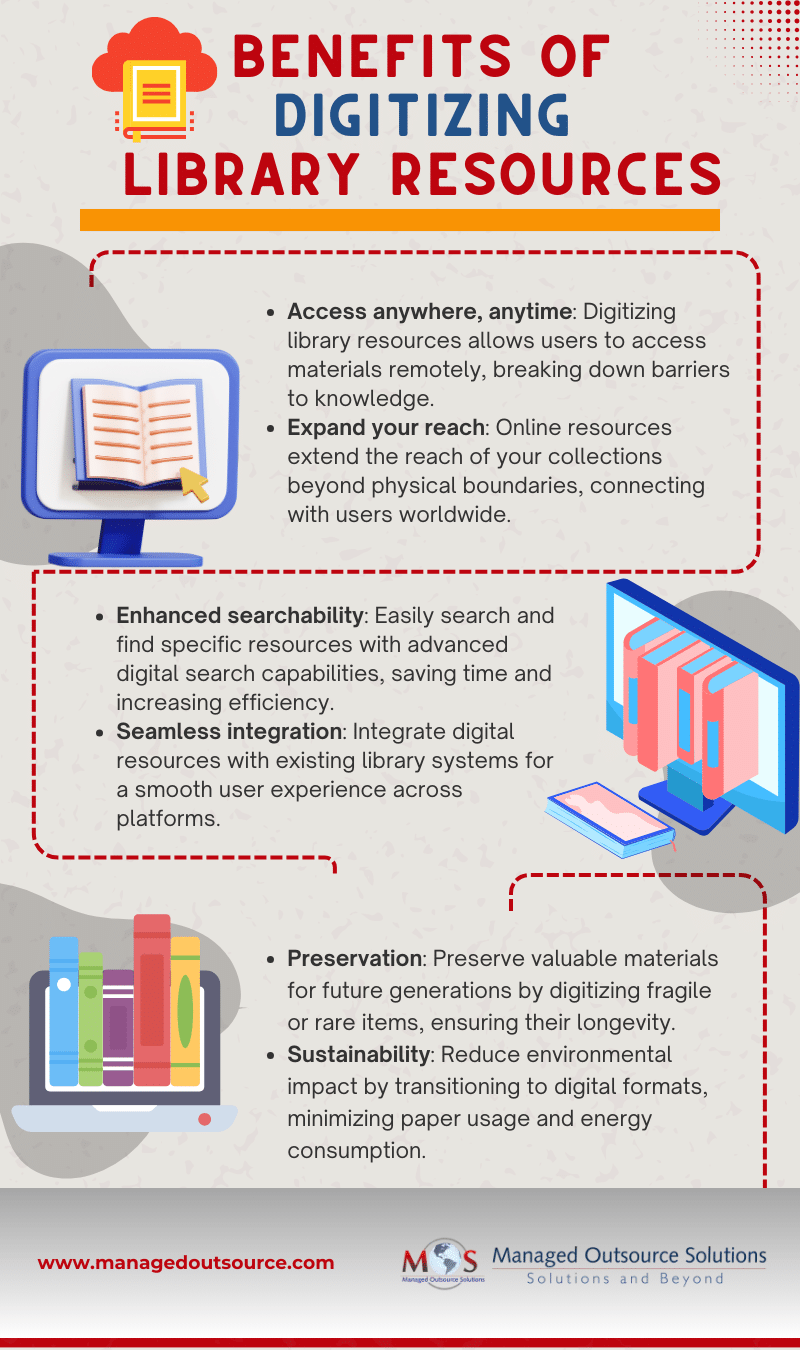In today’s digital age, the role of libraries has evolved beyond physical spaces lined with shelves of books. All public libraries nationwide are moving towards digital transformation, offering a range of experiences with books and materials, and ensuring access to the required materials anywhere anytime. A digitized library collection helps to protect the original material for students, researchers and scholars.
Digitization is a great support for many libraries that are under pressure to reduce floor space. The cost of backed-up storage has forced many libraries to go digital and the limited archive of digitized material is another reason. With the assistance of document scanning services, libraries can convert their valuable books, manuscripts, and documents into their digital format. With digitized materials, it is easier to access the library’s digital collections, e-books, online catalogs and other resources online.
How Digital Libraries Serve Readers
With the advent of online libraries, readers now have exceptional access to a wealth of information and resources at their fingertips. This is how digital libraries serve readers in the modern world.
- Accessibility: Online options break down barriers to access, allowing readers to explore a vast array of materials from anywhere with an internet connection. Whether it’s a student studying late at night or a professional researching a topic on the go, such libraries provide convenient access to resources 24/7.
- Expanded collections: Unlike traditional libraries limited by physical space, online resources can offer extensive collections that span various formats, genres, and languages. From e-books and audiobooks to scholarly articles and archival documents, readers can discover a diverse range of materials tailored to their interests and needs.
- Customization: Digital archives empower readers to customize their reading experience. With features such as personalized recommendations, bookmarking, and annotation tools, users can curate their own virtual library, organizing and accessing content in ways that suit their preferences.
- Searchability: One of the most significant advantages of digital libraries is their advanced search capabilities. Readers can quickly and efficiently find specific information within vast collections, thanks to robust search algorithms and metadata tagging. This streamlined search process saves time and enhances the overall reading experience.
- Interactivity: e-libraries offer interactive features that engage readers in new ways. From multimedia content and interactive exhibits to online discussion forums and virtual book clubs, readers can participate in dynamic learning experiences and connect with fellow enthusiasts worldwide.
- Accessibility tools: Online libraries prioritize accessibility, ensuring that all readers, including those with disabilities, can access and enjoy library resources. Features such as screen readers, text-to-speech functionality, and adjustable font sizes make digital content more inclusive and accessible to diverse audiences.
- Collaboration and sharing: Digitization facilitates collaboration and knowledge-sharing among readers and researchers. Through social media integration, citation tools, and collaborative research platforms, users can connect with peers, share resources, and contribute to collective learning endeavors.
Digitization of library resources has provided a new platform for the preservation of these delicate documents and also enabled online access to these rich resources.
Printing Books vs. Digital Libraries
| Printing Books | Digital Libraries | Tangible experience | Portable and accessible |
|---|---|
| No need for electronic devices | Reduces paper usage |
| Allows for annotation and highlighting | Searchability and easy navigation |
| Requires physical storage space | Prone to technological issues |
If you wish to digitize your library resources, make sure that you partner with a reliable document scanning company that can handle huge volumes of fragile documents without causing any damage to the originals. Experienced providers of outsourced solutions can handle large volume document scanning and other conversion needs of their clients efficiently.
Streamline your library operations with our document scanning services!





